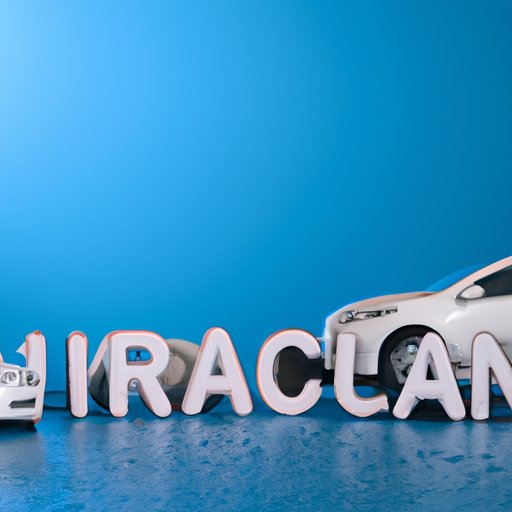Introduction
Car insurance is an important part of owning and driving a vehicle. It provides financial protection in case of an accident or other unexpected event that results in damage to your car or property. When considering whether to lease or finance a car, it’s important to compare the cost of car insurance for each option to determine which one will be the most affordable in the long run.
Comparing the Cost of Car Insurance: Leasing vs Financing
Leasing and financing are two different ways of acquiring a car. When you lease a car, you enter into an agreement with a dealership or finance company to pay a set amount each month for a certain period of time. At the end of the lease term, you have the option to buy the car or return it. When you finance a car, you take out a loan from a lender to purchase the car and make monthly payments until the loan is paid off.
The type of car insurance you need when leasing or financing a car will depend on the terms of the lease or loan agreement. Generally, lenders and dealerships require comprehensive coverage, which covers damages to your car caused by events such as theft, fire, or vandalism. In addition, some lenders may also require collision coverage, which covers damages to your car resulting from an accident. Depending on the terms of the lease or loan, you may also be required to carry uninsured/underinsured motorist coverage and gap insurance.
The cost of car insurance when leasing or financing a car can vary greatly depending on a number of factors, including the make and model of the car, your age and driving record, the amount of coverage you choose, and the deductible you select. Additionally, some lenders offer discounted rates for customers who finance their cars through the lender, so it’s important to compare rates from multiple providers to find the best deal.
Finding the Cheapest Car Insurance Option: Leasing or Financing?
When it comes to finding the cheapest car insurance option when leasing or financing a car, there are several factors to consider. First, the make and model of the car can have a big impact on car insurance rates. For example, luxury vehicles typically have higher insurance premiums than economy cars. Second, your age and driving record can also affect your car insurance rates. Drivers with clean records and no prior claims will usually get better rates than drivers with less-than-perfect records. Finally, the amount of coverage you choose and the deductible you select can have a major impact on your car insurance rates.
In addition to these factors, it’s important to shop around and compare rates from different companies to find the best deal. Different insurers offer different discounts and incentives, so it’s important to ask about those when getting quotes. Additionally, some states offer discounts for drivers who complete defensive driving courses or take other safety measures, so be sure to inquire about those as well.
Exploring Which Option is Cheaper: Leasing or Financing Your Car?
When it comes to deciding whether to lease or finance a car, it’s important to consider both the short-term and long-term financial implications. In the short term, leasing a car can be less expensive because you don’t have to make a large down payment or pay interest on a loan. However, over the long term, financing a car can be cheaper because you’ll own the car after the loan is paid off and won’t have to make any additional payments. Additionally, when you own the car outright, you have more flexibility to customize it and make changes without worrying about violating the terms of a lease agreement.
What are the Financial Benefits of Leasing and Financing a Car?
Leasing a car has several financial benefits. First, you don’t have to make a large down payment, which can help free up cash for other expenses. Second, the monthly payments are typically lower than financing a car, so it can be easier to budget for the cost. Finally, at the end of the lease term, you have the option to buy the car or return it, which gives you more flexibility than if you were to finance the car.
Financing a car also has its advantages. First, you don’t have to worry about returning the car at the end of the term, so you can keep it for as long as you want. Second, since you’re paying for the entire cost of the car, you can often get a better deal on the purchase price. Finally, when you own the car, you can customize it and make changes without worrying about violating the terms of the lease agreement.

How to Save Money on Car Insurance by Leasing or Financing
No matter which option you choose, there are several steps you can take to save money on car insurance when leasing or financing a car. First, compare different policies and make sure you’re getting the coverage you need at the best rate. Second, take advantage of any discounts or other incentives offered by insurers. Finally, shop around and compare rates from different companies to find the best deal.
Conclusion
When it comes to finding the cheapest car insurance option when leasing or financing a car, it’s important to compare the cost of car insurance for each option and take into account all of the factors that can affect the cost. Additionally, it’s important to shop around and compare rates from different companies to ensure you’re getting the best deal. By following these steps, you can find the cheapest car insurance option that meets your needs.
(Note: Is this article not meeting your expectations? Do you have knowledge or insights to share? Unlock new opportunities and expand your reach by joining our authors team. Click Registration to join us and share your expertise with our readers.)
